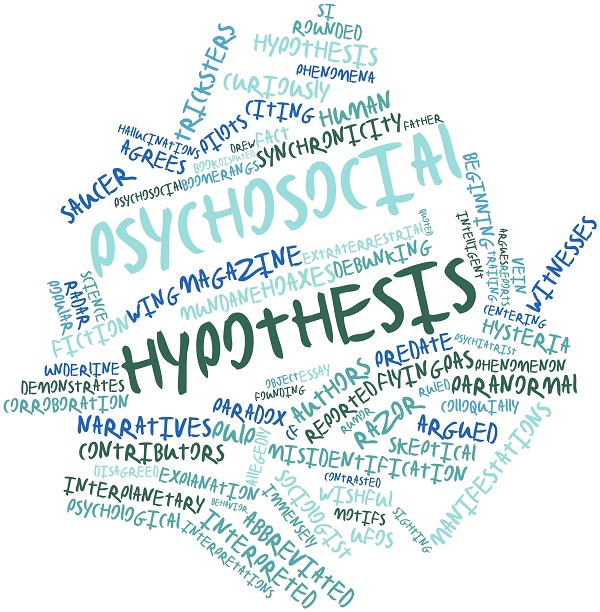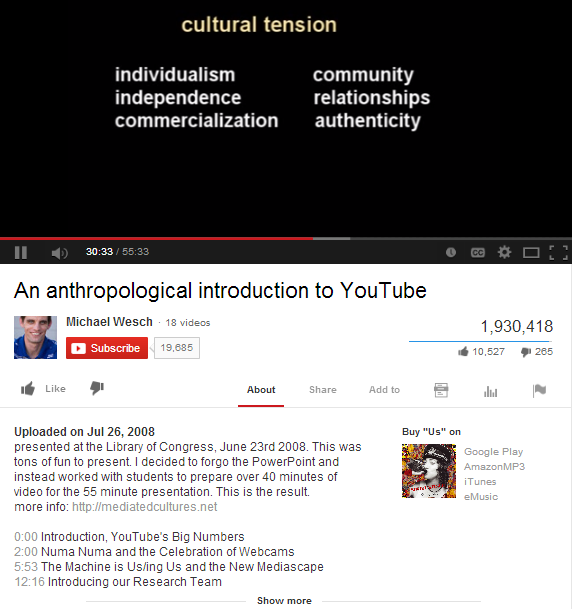22 Jul Context Collapse: Communication Without Boundaries
 In social media, “Context is everything” – says Danna Boyd. And although she is completely correct, the picture is much larger than just social media. In all media, and all communication, context is essential to understanding (Video). Los Angeles Clippers Owner, Donald Sterling was stung and surprised by the fact that his recorded statements indicted him as a racist in the very racially mixed National Basketball Association. In todays mobile-media saturated society, information like this can go viral on the internet (something not possible when I began writing Understanding Context) and result in international scandal. Before mobile social media, probably the damning conversation would have never come to the attention of more than a few people, and would have amounted to nothing. Not today.
In social media, “Context is everything” – says Danna Boyd. And although she is completely correct, the picture is much larger than just social media. In all media, and all communication, context is essential to understanding (Video). Los Angeles Clippers Owner, Donald Sterling was stung and surprised by the fact that his recorded statements indicted him as a racist in the very racially mixed National Basketball Association. In todays mobile-media saturated society, information like this can go viral on the internet (something not possible when I began writing Understanding Context) and result in international scandal. Before mobile social media, probably the damning conversation would have never come to the attention of more than a few people, and would have amounted to nothing. Not today.
I do not bring this up to justify or vindicate racial intolerance – for all I know, the guy’s a bona fide creep – just to note that the world is changing. As the world changes, and civil liberties such as privacy collapse, people need to be more mindful and purposeful when using a combination of language and technologies, especially mobile devices that can evolve into an appendage to one’s self. I can’t count the number of times I have said things I would like to instantly expunge. This mindfulness will become doubly important as we enter the age of knowledge where that evolution and extension of self will accelerate.
| Understanding Context Cross-Reference |
|---|
| Click on these Links to other posts and glossary/bibliography references |
|
|
|
| Prior Post | Next Post |
| Intro to Cybernetic Models | |
Definitions |
References |
| Isaksen 2013 | |
| Putnam 2000 Social Capital Primer | |
| Rainie 2012: Pew Internet Project |
YouTube is one of the most socially intense phenomena to lodge itself in digital history. The complete democratization of moving pictures is hugely liberating. On the subject of Digital Ethnography – Michael Wesch, an anthropologist speaking at the Library of Congress, described the context explosion that is social media, and the ways in which YouTube has given power to anyone with a webcam. Please click below to watch his video.
Wesch speaks of the separation of form and content that gives people license to express themselves freely. This extends the social media phenomenon, linking people in ways never before seen, and completely unpredictable. Specific characteristics of the social information space include “User-Generated Filtering” by people choosing and reposting links that appeal to them, and “User-Generated Organization” that permits people to tag content and make it easier for others who are drawn to the tag to view the content and help in its viral spread. In this way, web-deployed media may mediate human relationships by expanding conversations, sometimes creating global dialogs, and connecting like-minded people who would never have met otherwise. This is an amazing and liberating opportunity, and should be encouraged and expanded, but it has its weaknesses.
 We can get a completely false sense of an event, place, activity or a person based on a tweet, a post, a sound bite or a video snippet. Many people have been tarred and feathered or “swift boated” because of misimpressions, often taking one person’s agenda, and spinning it virally to create a groundswell of support. The big problem with some of these groundswells or viral media phenomena, is that many or most of the supporters, with more complete information, may look at the situation differently. Knowing about the identity of both the author (speaker) and audience of a linguistic act is necessary to fully comprehend the intent. And the more you know, the more you increase the likelihood of understanding.
We can get a completely false sense of an event, place, activity or a person based on a tweet, a post, a sound bite or a video snippet. Many people have been tarred and feathered or “swift boated” because of misimpressions, often taking one person’s agenda, and spinning it virally to create a groundswell of support. The big problem with some of these groundswells or viral media phenomena, is that many or most of the supporters, with more complete information, may look at the situation differently. Knowing about the identity of both the author (speaker) and audience of a linguistic act is necessary to fully comprehend the intent. And the more you know, the more you increase the likelihood of understanding.
Robert Putnam asks if you’re bowling alone
Robert Putnam, unfolding the “Collapse and Revival of American Community” warns that we’re rapidly losing our social capital – the fabric of our connections with each other. This loss of context, he suggests, is impoverishing our lives and communities. Having conducted nearly 500,000 interviews over decades, Putnam finds that we sign fewer petitions, belong to fewer organizations that congregate, and have fewer, less intimate interactions with our neighbors, friends and our families. While it was less common in the past, he’s seen an increase in bowling alone. While more Americans than ever before are bowling, they are not joining bowling leagues. In his book, Putnam shows how these declines in social capital result from changes in work, family structure, demographic distribution, neighborhood gentrification, mass media, the internet, women’s roles and other factors.  Context collapse has been escalating for many years as the 24-hour news cycle has spewed too much unanalyzed information that vilifies some, and deifies others far beyond reason. Media worship of athletes and other entertainers infects society as a whole with horribly skewed perspectives on the relative heroism of individuals and their successes and failures. Placing people on such high pedestals is a way of fabricating scoops, in which news organizations greatly profit from the publishing the juicy details of the inevitable fall of normal people so elevated. The speed of communication and the inevitability of human failings combine to create much potential for damage to people’s reputations.
Context collapse has been escalating for many years as the 24-hour news cycle has spewed too much unanalyzed information that vilifies some, and deifies others far beyond reason. Media worship of athletes and other entertainers infects society as a whole with horribly skewed perspectives on the relative heroism of individuals and their successes and failures. Placing people on such high pedestals is a way of fabricating scoops, in which news organizations greatly profit from the publishing the juicy details of the inevitable fall of normal people so elevated. The speed of communication and the inevitability of human failings combine to create much potential for damage to people’s reputations.
Networked Individualism
Does context collapse, as a phenomenon, do broad damage to society? I think the jury is still out. The democratization of knowledge leads to more independence, and the more independent we become, the more we long for authenticity. And although the depersonalization of connections to bits and bytes can lead to dissociation, there is evidence of significant human benefits in the proliferation of technology.  The nature social interaction patterns, especially those mediated by technology, leads to new types of relationships. The picture at right suggests tele-medecine: a huge boon to travelers needing specialized care. This is just one example of a new pattern of relationship Remote doctor and patient) in which digital technology changes behaviors in the socio-sphere. “Our work at the Pew Internet Project and the University of Toronto’s NetLab (especially research for the Connected Lives Project) does not support the fear that the digital technologies are killing society. Our evidence is that these technologies are not isolated — or isolating — systems. They are being incorporated into people’s social lives much like their predecessors were.”
The nature social interaction patterns, especially those mediated by technology, leads to new types of relationships. The picture at right suggests tele-medecine: a huge boon to travelers needing specialized care. This is just one example of a new pattern of relationship Remote doctor and patient) in which digital technology changes behaviors in the socio-sphere. “Our work at the Pew Internet Project and the University of Toronto’s NetLab (especially research for the Connected Lives Project) does not support the fear that the digital technologies are killing society. Our evidence is that these technologies are not isolated — or isolating — systems. They are being incorporated into people’s social lives much like their predecessors were.”
The advent of mechanized travel disturbed naturalists, including Henry David Thoreau, but it also expanded people’s spheres by enabling geographically separated people to connect more frequently. One goal of my work is to further weaken barriers to interaction by building systems smart enough to accurately interpret speakers’ intent in multiple languages, shrinking cultural and linguistic gaps, and enabling new patterns of relationships that are not constrained within current geo-cultural limits.
| Click below to look in each Understanding Context section |
|---|









